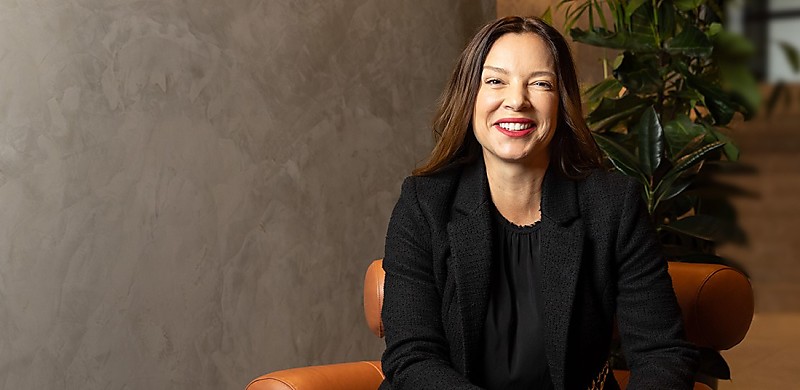
A new ‘university-level’ mortgage broker qualification has been launched by the MFAA for experienced mortgage brokers.
The Mortgage & Finance Association of Australia (MFAA) has launched a new qualification for the mortgage broking industry, designed to provide a ‘university-level’ designation for brokers.
Developed in conjunction with international university, the Royal Melbourne Institute of Technology Online (RMIT Online), and offered exclusively to experienced MFAA mortgage brokers, the Mortgage Finance Professional Australia (MFPA) designation is billed as ‘the first professional mortgage broker designation in the country’.
What does it entail?
The MFPA Program is a self-paced learning opportunity, involving up to 40 hours of study.
Hosted on RMIT Online’s Canvas Learning Management System, the new designation comprises the core MFPA course and electives.
It aims to provide brokers with an additional qualification that shows a broker’s skills as a business leader and covers five core areas: ethics, education, experience, examination, and entity.
Brokers must apply to take part in the new designation and must have:
- MFAA membership (and have met their CPD requirements).
- Completed a Diploma of Finance and Mortgage Broking Management.
- A minimum of five years’ experience as a practising mortgage broker (or show equivalent experience).
- Settled a minimum of 250 loans (across residential, commercial, or other loans).
- Two professional endorsements (one from an aggregator) confirming their tenure and experience.
Brokers undertaking the MFPA Program must successfully complete the core modules of:
- Personal Leadership
- Customer Engagement
- Business Management
- One elective (either SMSF Lending or Financial Analysis for Mortgage Finance Professionals)
They must also demonstrate excellence and a commitment to professional standards in ethics, education, conduct, and customer engagement to be awarded the MFPA professional designation.
Professionalising the industry
Launching the MFPA at a welcome event on Tuesday evening (22 July) in Melbourne ahead of the MFAA’s National Conference today (23 July), MFAA CEO Anja Pannek said the new qualification had been five years in the making and was the result of years of “careful research, planning and hard work”.
Speaking to The Adviser, Pannek said the new qualification aimed to “professionalise this industry”, likening it to accounting and financial planning.
“What we want to see is an industry where, very similar to what you see with Chartered Accountants, there is an aspirational accreditation for qualified professionals in the mortgage brokering industry,” she said.
“I think what we’re really addressing is the opportunity for brokers who are experienced to differentiate themselves.
“We wanted to provide both the foundational and also the key components, so a broker can clearly call themselves out as a professional and do that in conjunction with a tertiary-level education standard in Australia that’s recognised and provided by one of Australia’s top universities.”
Pannek said “nothing like this has ever been done before” and would help brokers with an MFPA “differentiate themselves in an increasingly competitive market”.
According to Pannek, the designation is needed to show that the industry is “lifting standards”, which is “the biggest form of self regulation”.
While the MFAA CEO told The Adviser she believed minimum standards for a broker should be diploma level, she added: “If we don’t lift standards, regulators will come and look to make the changes they want to make…
“We’re stepping into what is the minimum entry requirement need to be.
“So what we’re doing through MFPA is providing a designation at a professional level that is quite differentiated for experienced brokers.
“And I think when we fast forward in time – be it five or 10 years – Australians will know the difference between an experienced mortgage professional and someone who really doesn’t want that dissemination.
“So I think this is an opportunity for us to front run that as well.
“We want to be regarded in this industry as being in the same league as, doctors, lawyers, financial planners, and other highly qualified, highly experienced individuals.
“These brokers will have university-level qualifications to run their business, to engage with their clients as they sit in front of them, and show they’ve got a different skill set that they’ve consciously and actively chosen to pursue.”
However, Pannek said that while the qualification would “highlight the credibility of being a professional broker”, it wouldn’t mean that they would need to charge a fee for service like other professions.
“It’s not about the remuneration model. I’ve gone on record before and said the remuneration model in this industry is fit for purpose, and if anything, I think unlike other industries, it means that the services of a broker are accessible, and that’s really important,” she said.
“It’s really just highlighting and elevating the role of a broker in the very important decisions that Australians take every day.
“This is a defining moment in broker education, signalling the next stage in the industry’s journey to professionalisation.
“I’m incredibly proud that the MFAA is leading the way on advancing industry standards and supporting members to create greater value for themselves and their clients.”
RMIT Online CEO Nic Cola added: “The MFAA’s commitment to strengthening the professional capability of its members is both timely and commendable.
“By championing lifelong learning, the MFAA is helping its members not only navigate change, and also stay ahead of emerging skills, particularly in areas that focus on exceptional client experience and sustainability.”
Dan Walsh, the executive for professional development and member engagement, suggested that the introduction of the professional designation “has the potential to transform our industry”.
“The benefits to brokers, customers and the industry are enormous,” he said, noting that brokers who receive the designation could build greater trust with their clients, be recognised as a leader in their sector, and gain a competitive edge by having university-level credentials.
“Borrowers gain confidence from knowing that brokers who hold the designation are highly qualified, experienced and uphold the highest professional standards.”
Several brokers – including finance broker Kate Sadler, director and founder of Queensland-based brokerage The Broker Society – have already completed the MFPA as part of a pilot program.
She said that the qualification was helped brokers level up their leadership strategy and growth mindset.
“It gives brokers the opportunity to step outside their own business bubble and look at things from a broader and more strategic perspective,” Sadler said.
“When we’re working in our business every day, it’s really easy for us to fall into our own routines, miss opportunities for improvement or innovation.”
However, she said the MFPA pushed her to develop skills and refine her vision for her business and “align some of [her] daily operations with long-term goals”.
“We know client experiences are important, but for a really successful and sustainable brokerage, we need to have leadership frameworks and I’m applying these concepts to my business,” she said.
Find out more about why the MFAA believes education standards need to be lifted in The Adviser podcast, ‘MORTGAGE AND FINANCE LEADER: Anja Pannek, MFAA CEO’, here:
[Related: MORTGAGE AND FINANCE LEADER: Anja Pannek, MFAA CEO]

